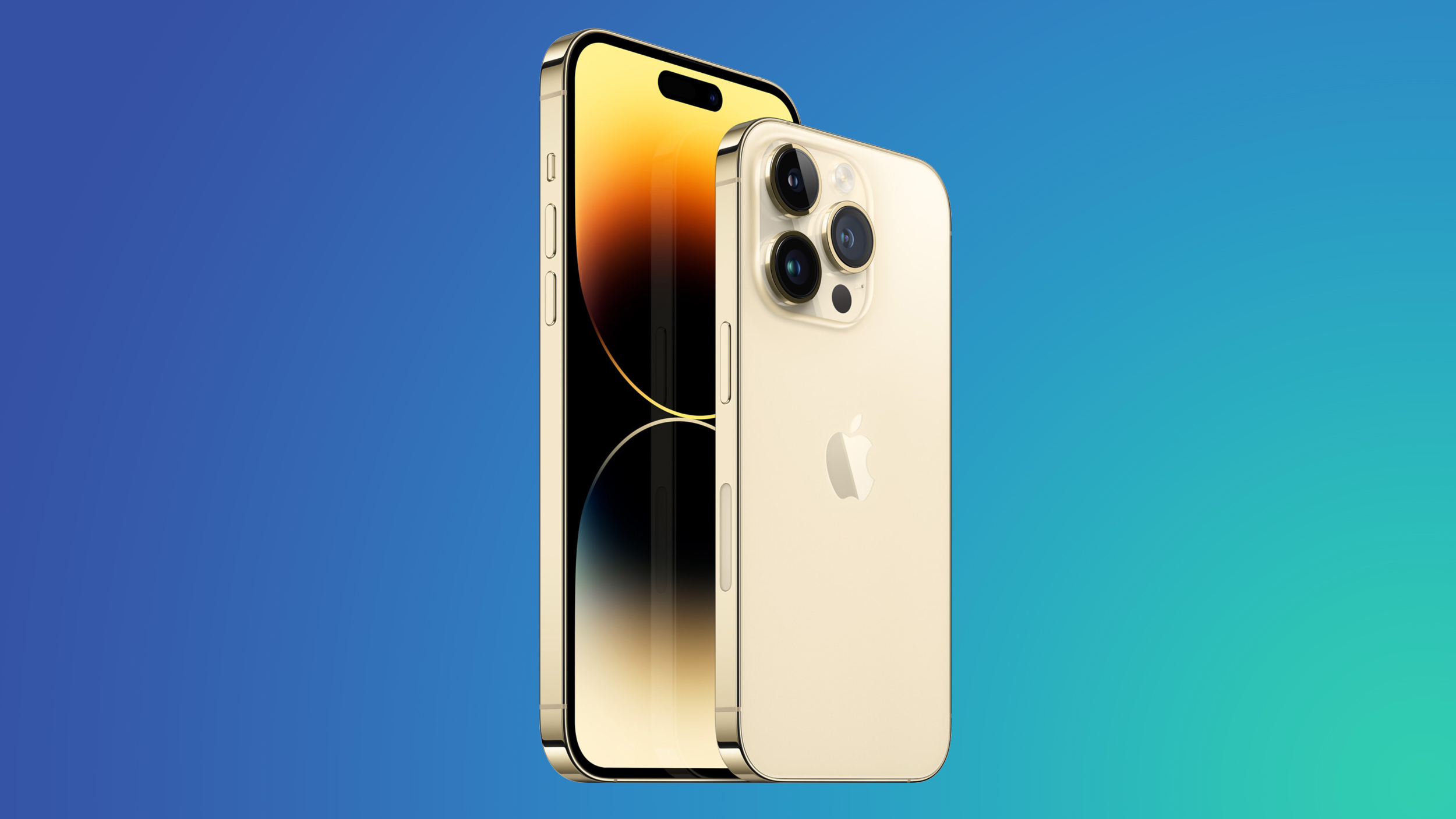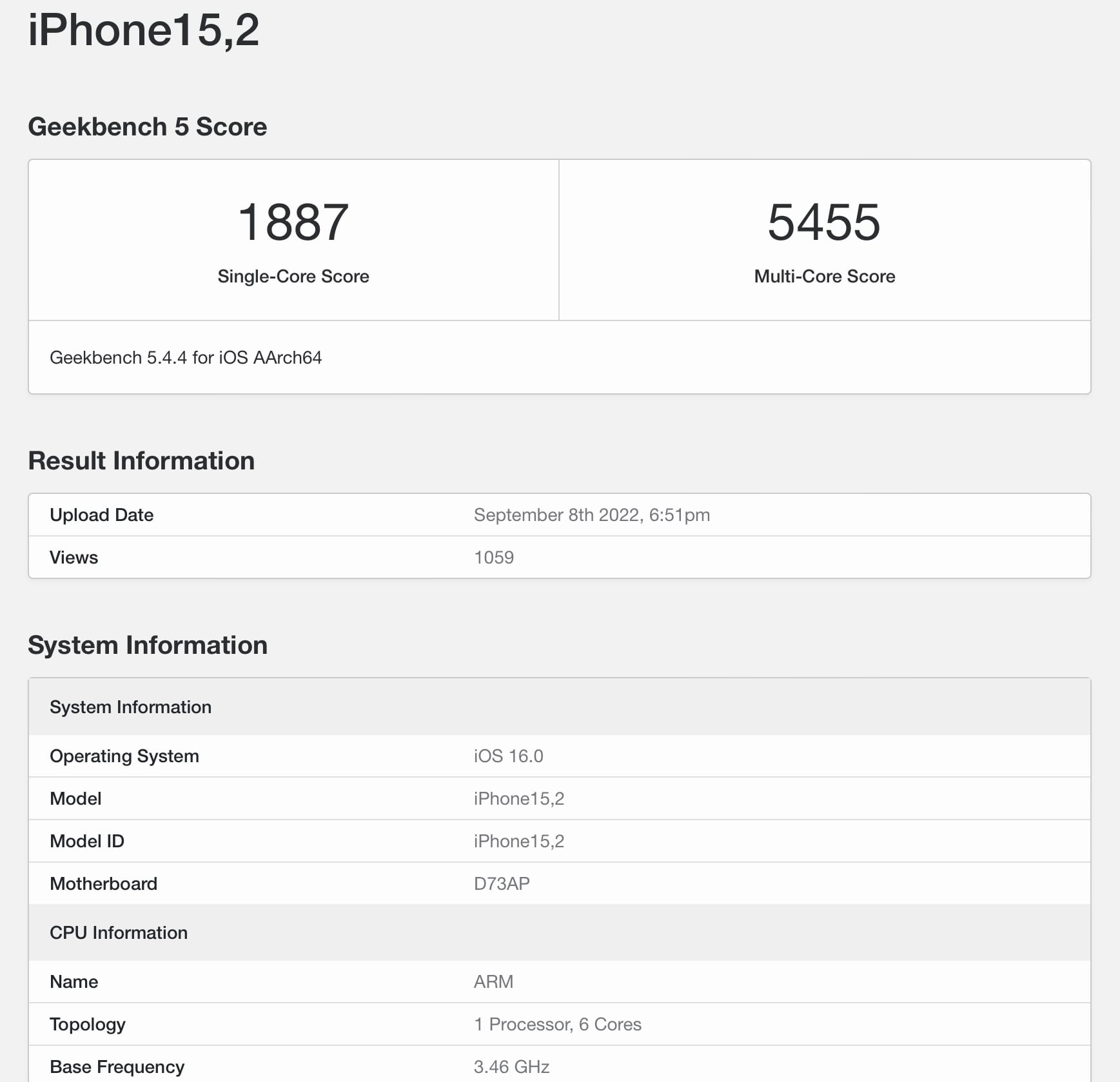
An early benchmark for the A16 chip in the iPhone 14 Pro and Pro Max suggested only modest speed improvements, but an additional score uploaded to Geekbench today indicates that we could see a more significant jump in performance compared to the A15 chip.

The A16 chip in the iPhone 14 Pro that was benchmarked earned a single core score of 1887, a 10.5 percent improvement over the 1707 score earned by the A15 in the iPhone 13 Pro.

As for multi-core performance, there are notable speed gains. The A16 earned a multi-core score of 5455, up 17.1 percent from the 4659 score earned by the A15 chip.
The result that we saw earlier this week from an iPhone 14 Pro Max suggested that multi-core performance was at around 4664, which would put the A16 barely over the A15 in terms of performance. Given that the A16 is running on an updated 4-nanometer process compared to the 5-nanometer process of the A15, the latest score shared today is more in line with expectations. Multi-core performance could perhaps even be somewhat higher if the iPhone that was benchmarked is still going through its initial setup process and uploading content to iCloud.
Apple's A16 chip is limited to the iPhone 14 Pro and iPhone 14 Pro Max, and we'll need additional benchmarks to get a better average for what we can expect in terms of performance improvements. The iPhone 14 and iPhone 14 Plus are still using the A15 chip from last year, but with the 5-core GPU that was originally limited to the iPhone 13 Pro models.
Article Link: A16 in iPhone 14 Pro is 17% Faster Than A15 in iPhone 13 Pro in New Benchmark

